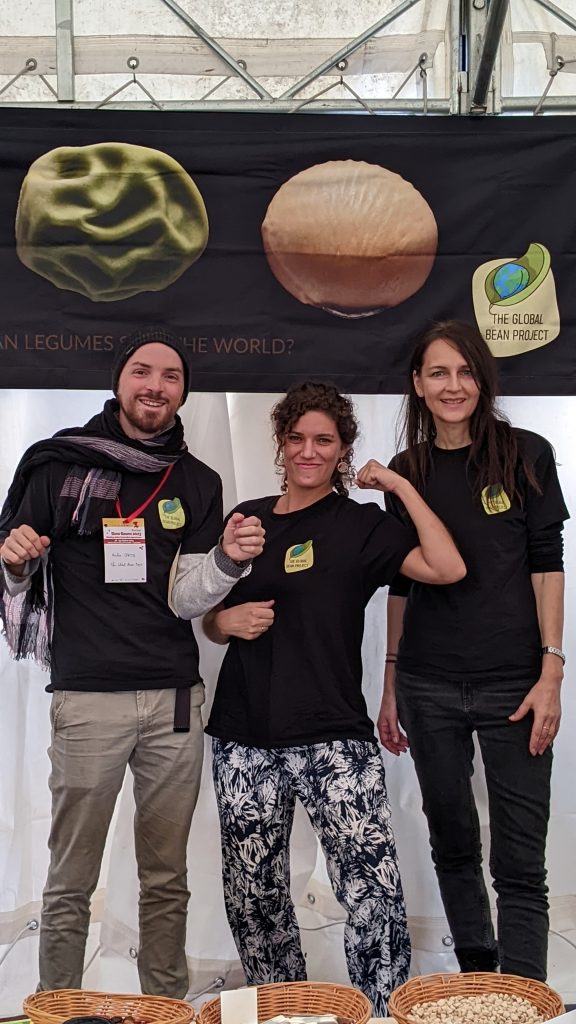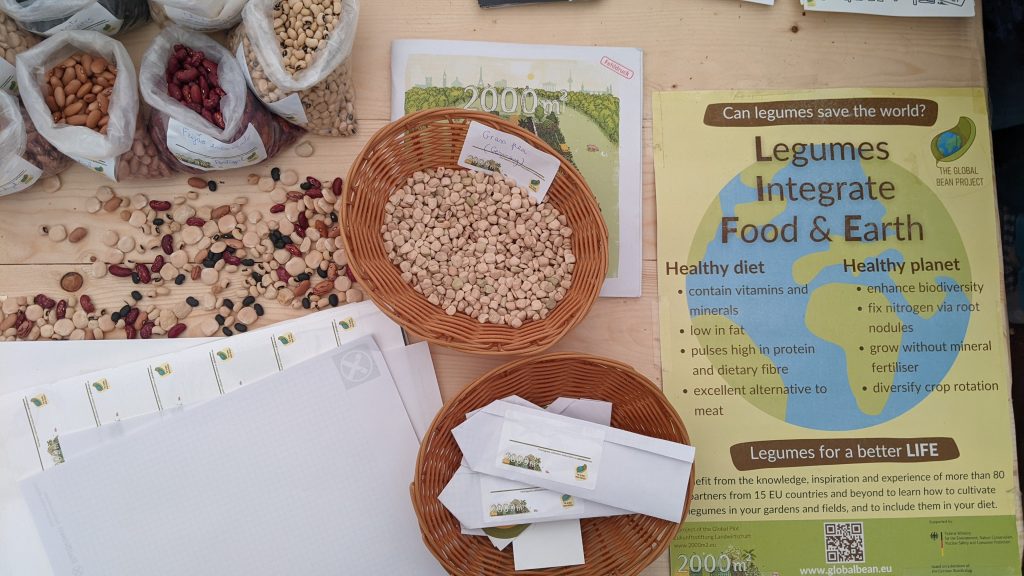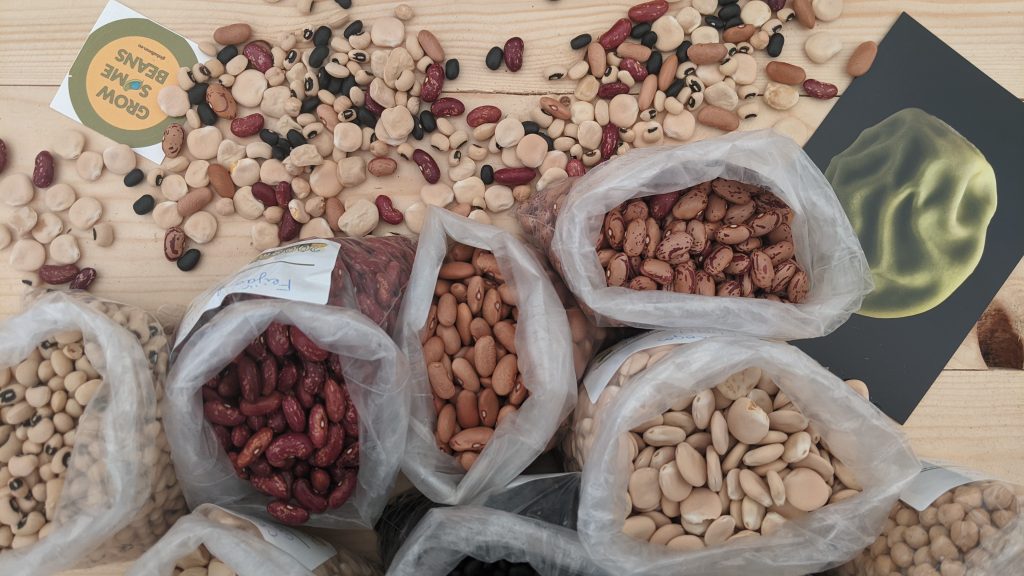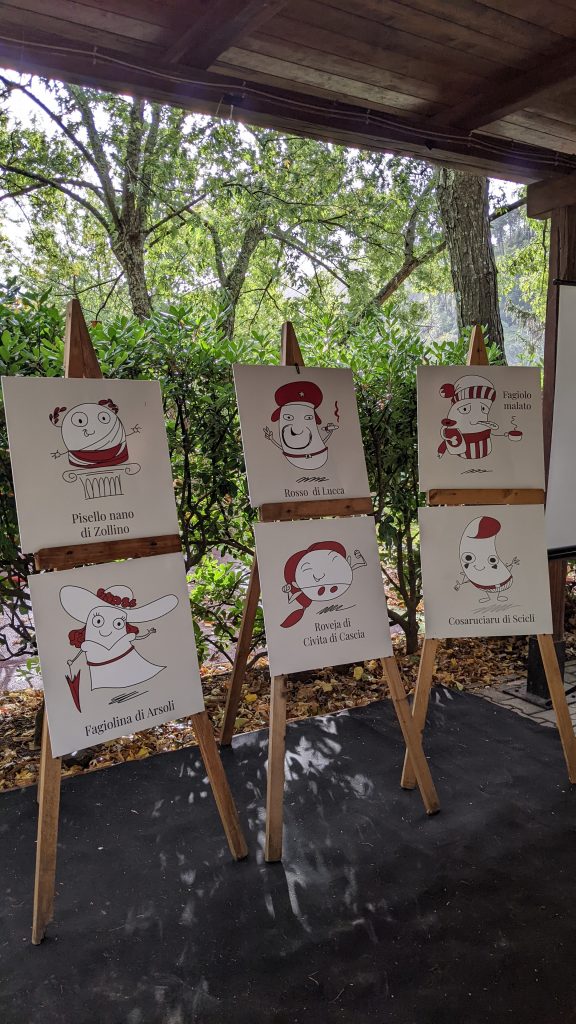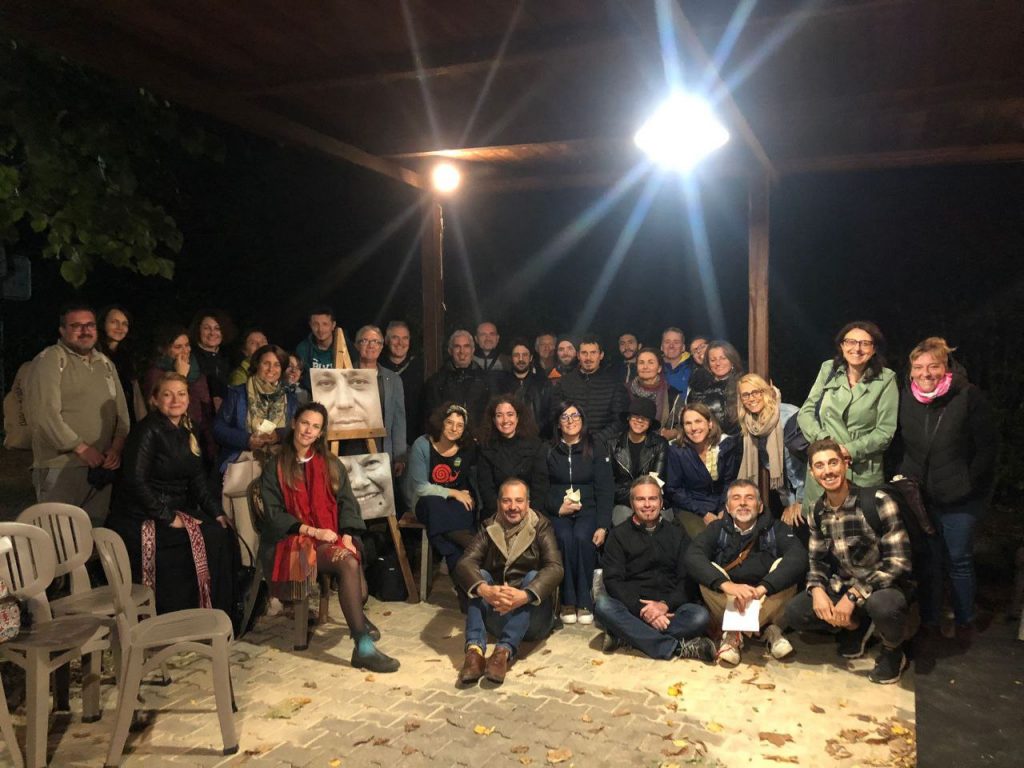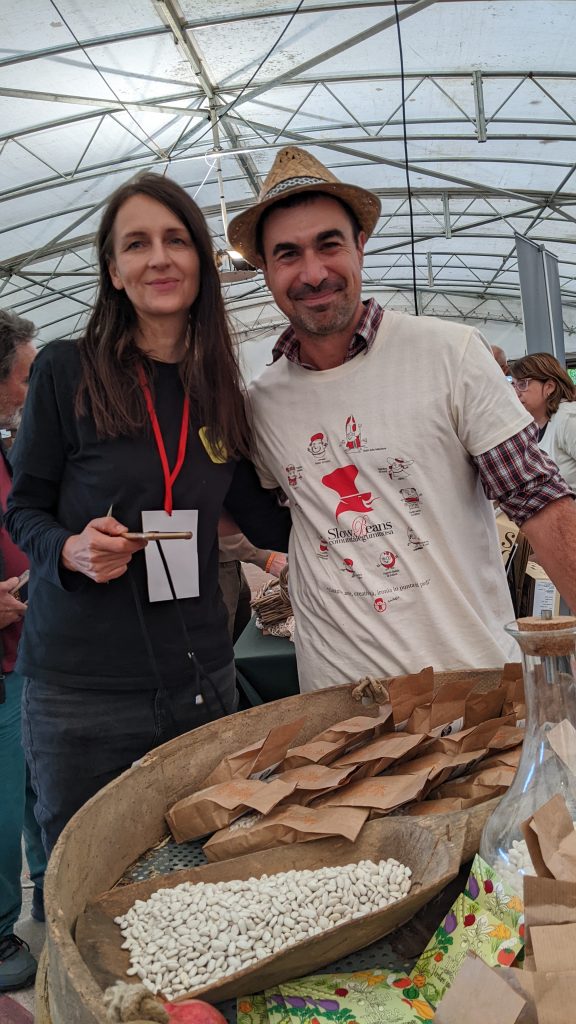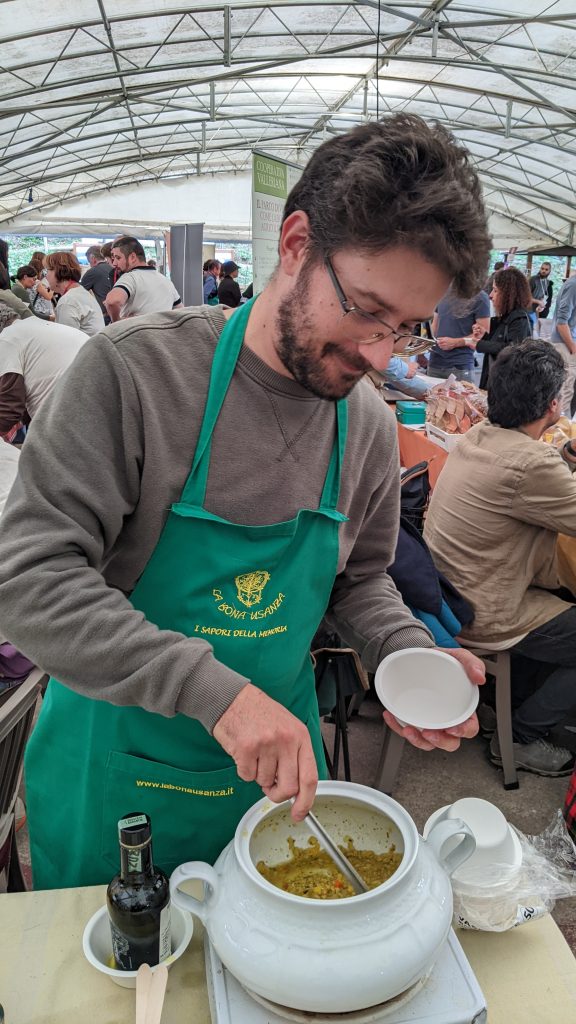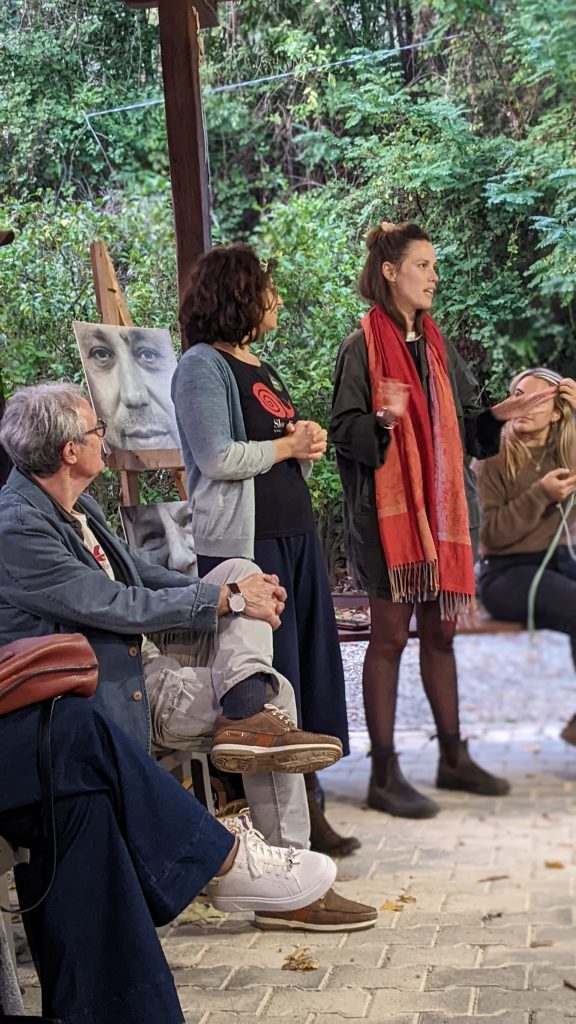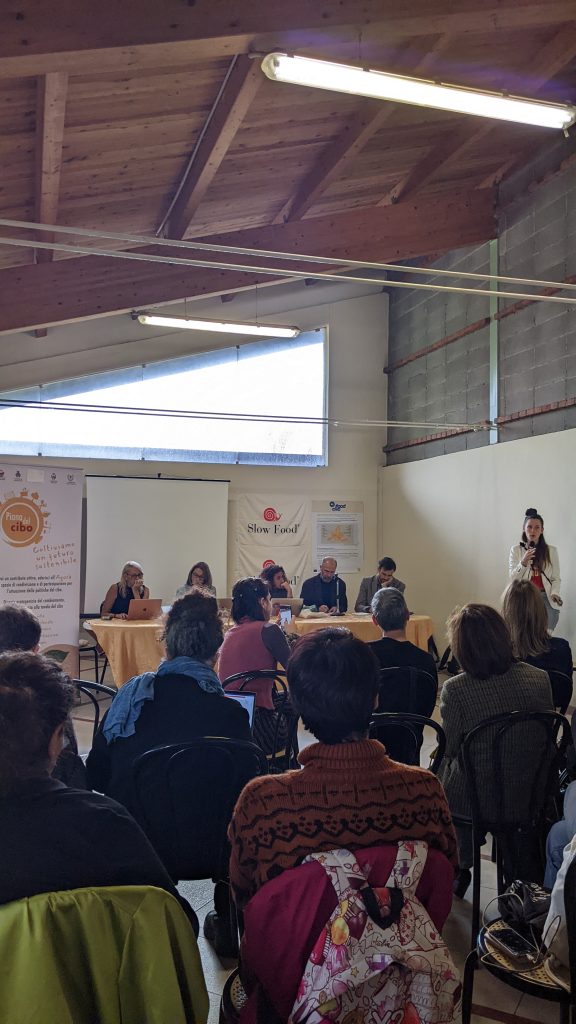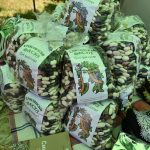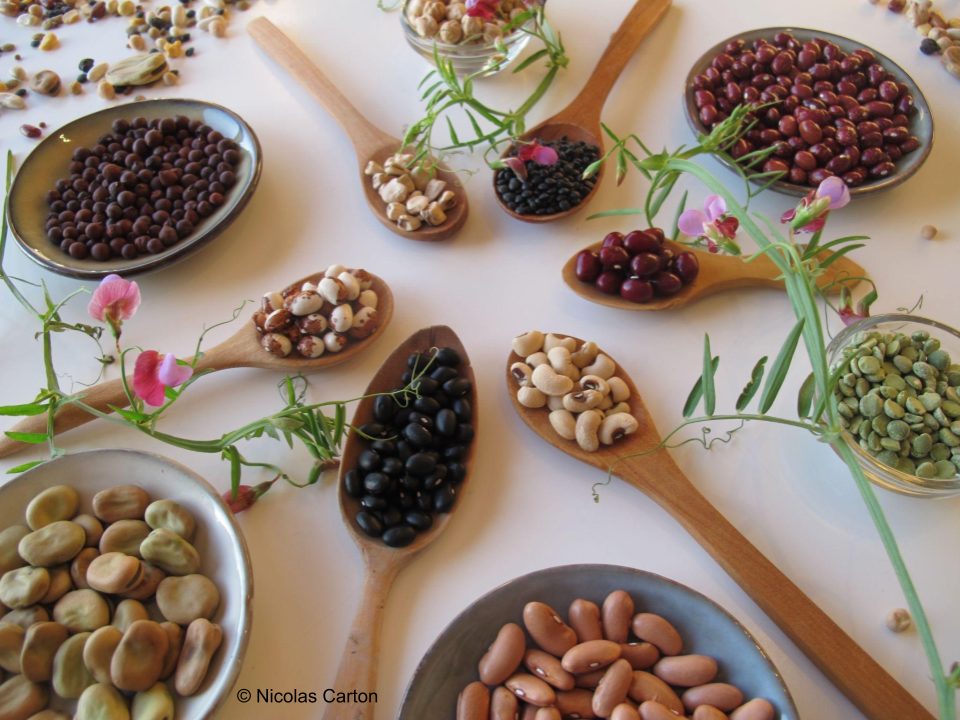
During the recent Slow Beans event on October 26th-29th 2023 in Capannori, Italy, Cecilia Antoni and Nicolas Carton from the Global Bean team gave a workshop on becoming a pulse ambassador together with Becky Ramsing from the Johns Hopkins Center for a Livable Future and Dana Smith from Meatless Monday.
A lesson on pulse advocacy
The importance of pulses (the edible seeds of legumes) for sustainable cropping systems and healthy diets is widely recognized. Common pulses include dry beans, dry peas, chickpeas, fava beans, and lentils.
This workshop highlighted the health benefits of pulses, their potential to diversify cropping systems, and the role that they can play in the protein transition movement. Participants were encouraged to discuss how they could find ways to promote pulses in their own communities.
You can find the presentation slides here!
1. Introduction
Participants recognized some of the pulses that were on display and wrote down memories and ideas that they had about different varieties, describing traditions that they knew of from their communities.
During this collective brainstorming, many traditional recipes combining pulses and cereals were discussed as well as the different forms pulses can take as ingredients (dry seeds that have to be cooked first, canned pulses, flour, etc).
We discussed how pulses can be used in schools (some children learn to count with pulse seeds) and many of us remembered discovering the process of germination with a big bean seed where the germ was very easy to see. It was also noted that consumption has decreased in many parts of the world over the last 50 years.
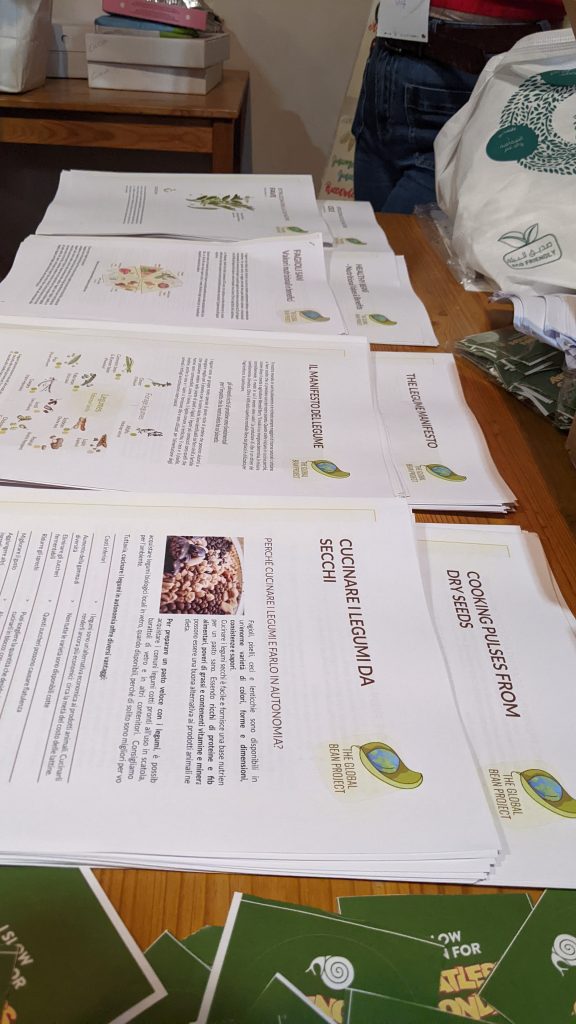
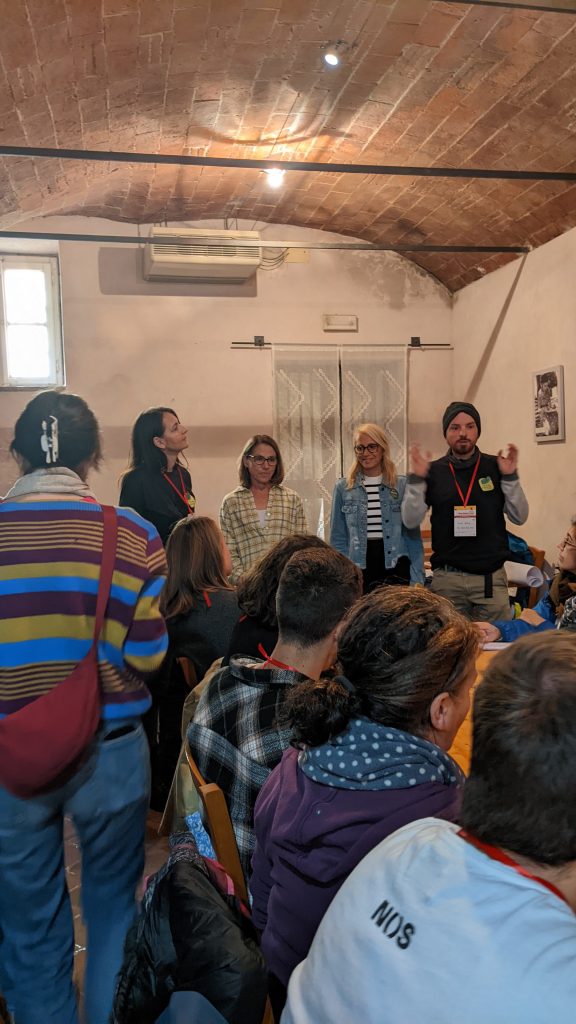
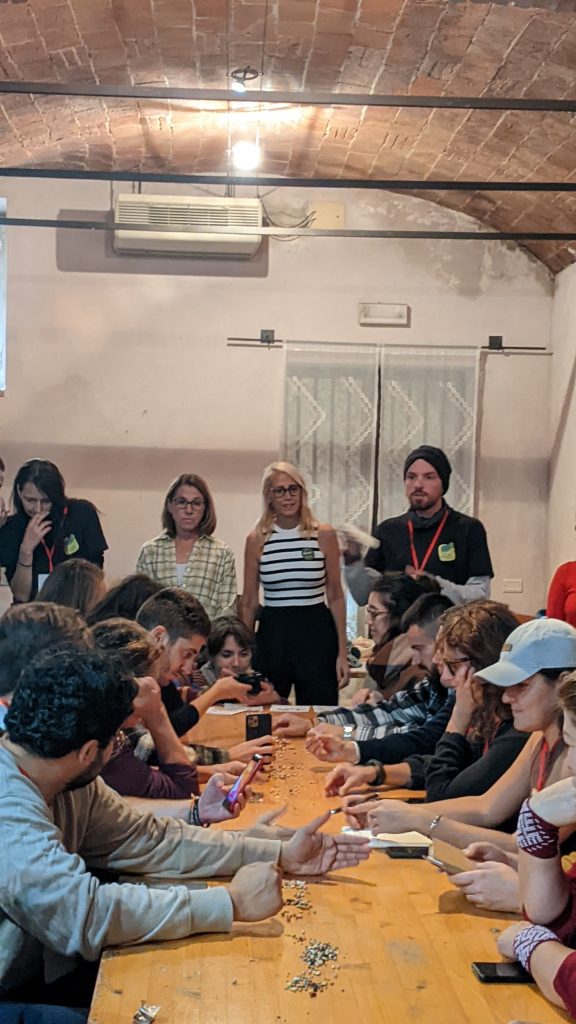
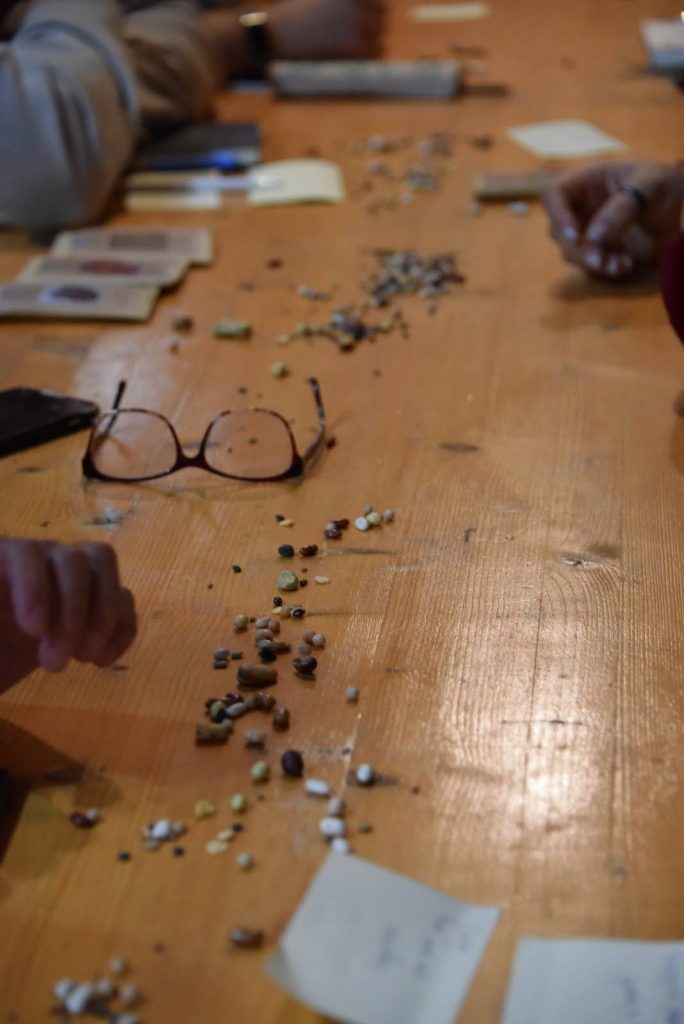
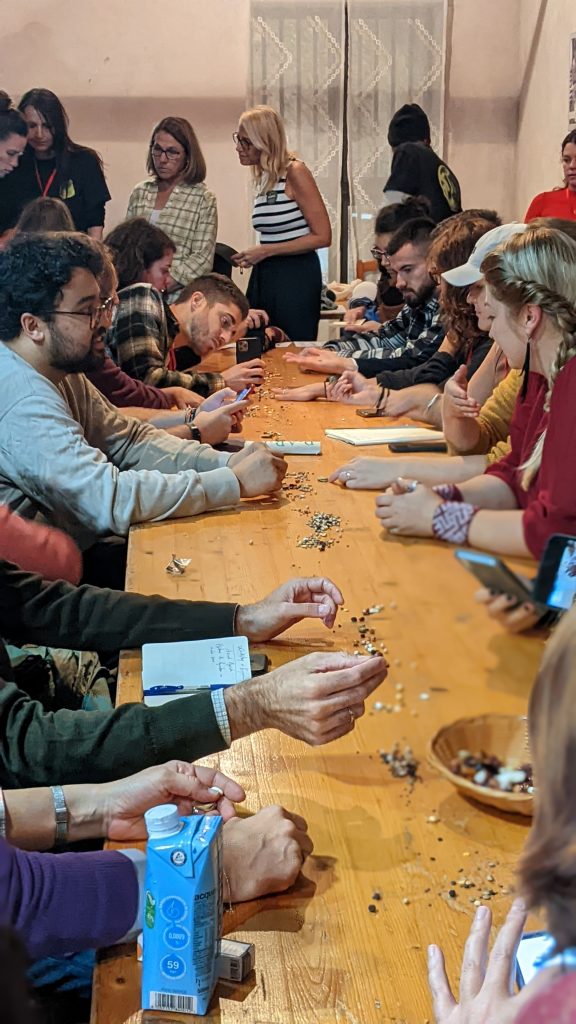
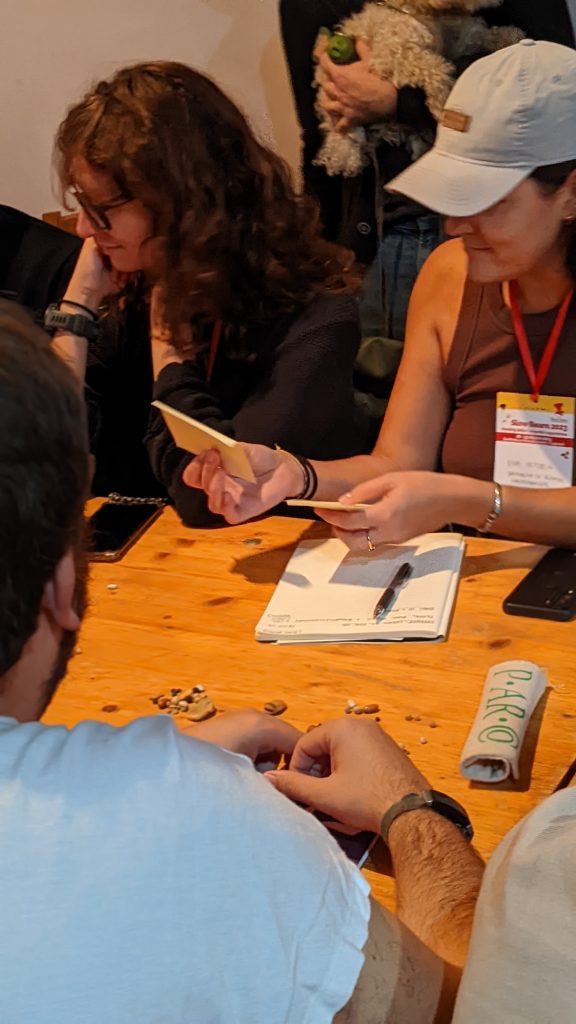
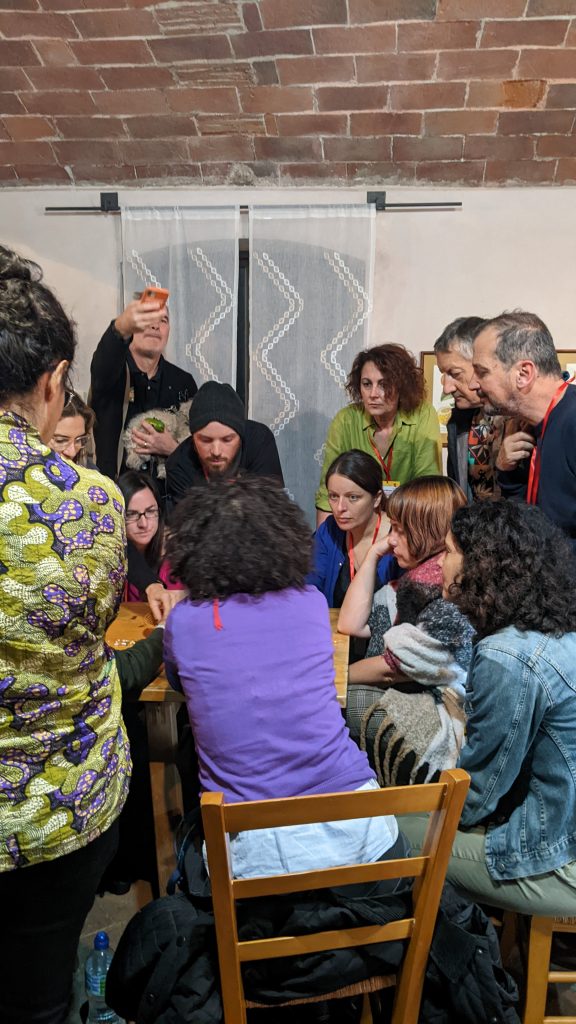
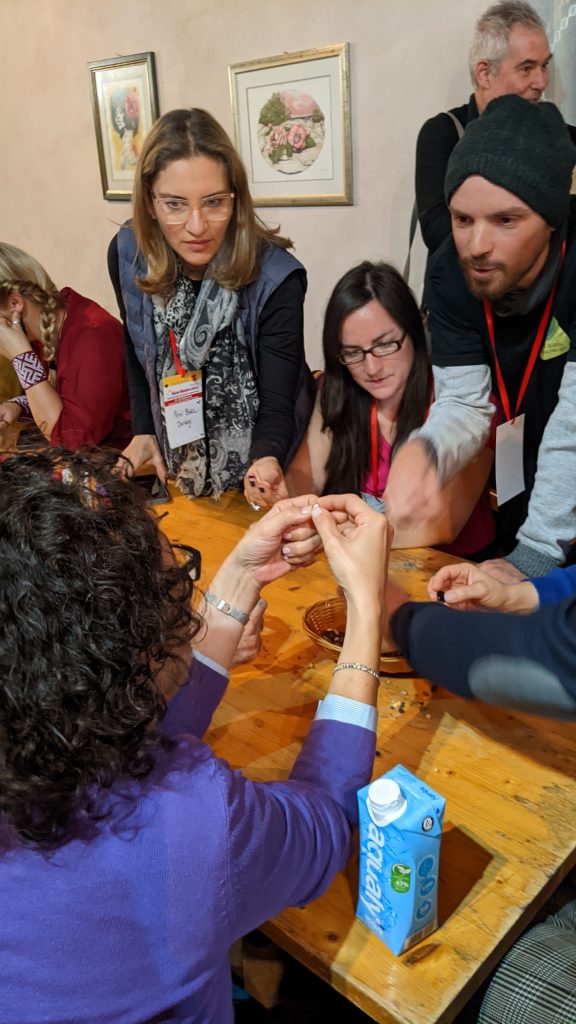
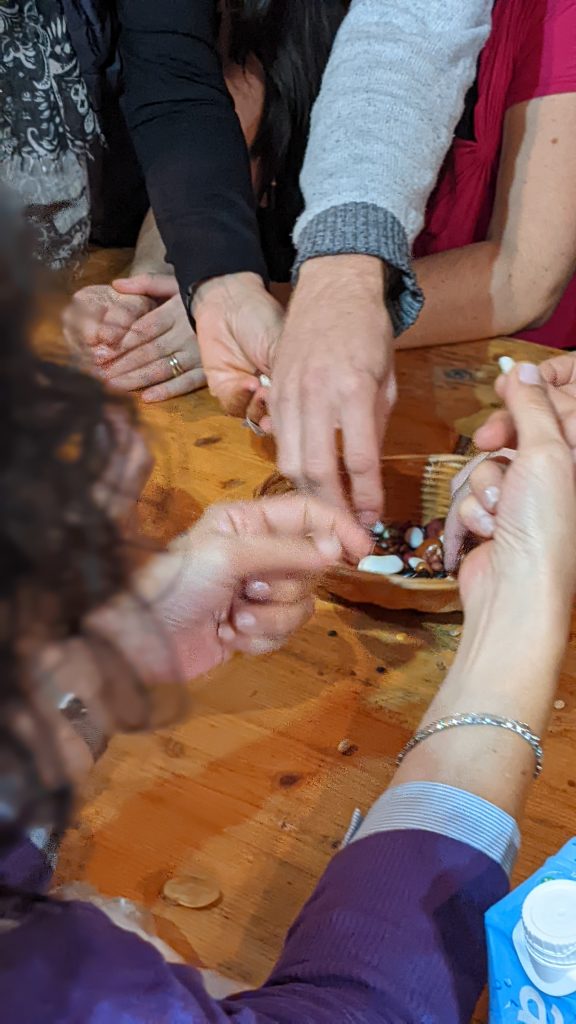
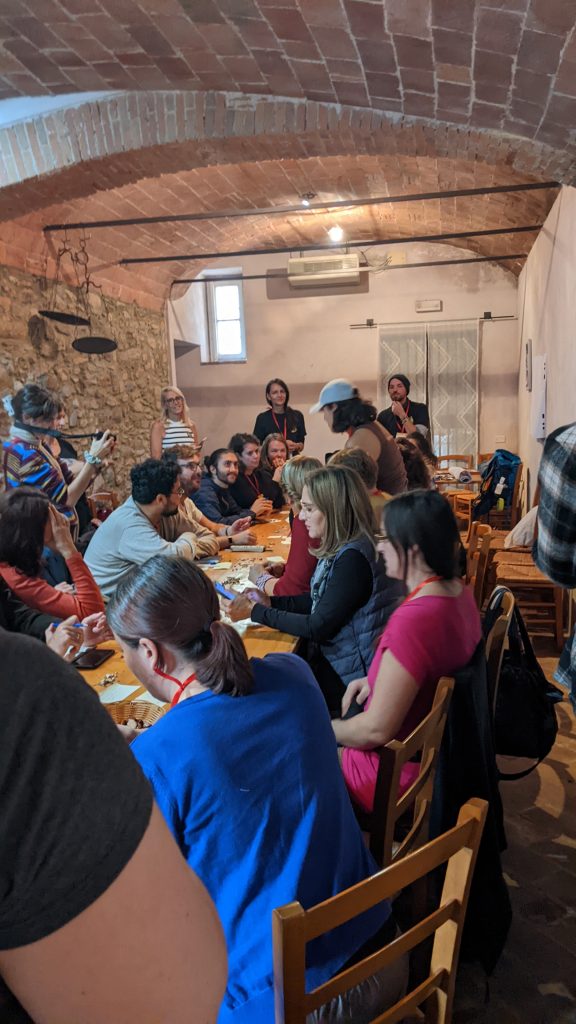
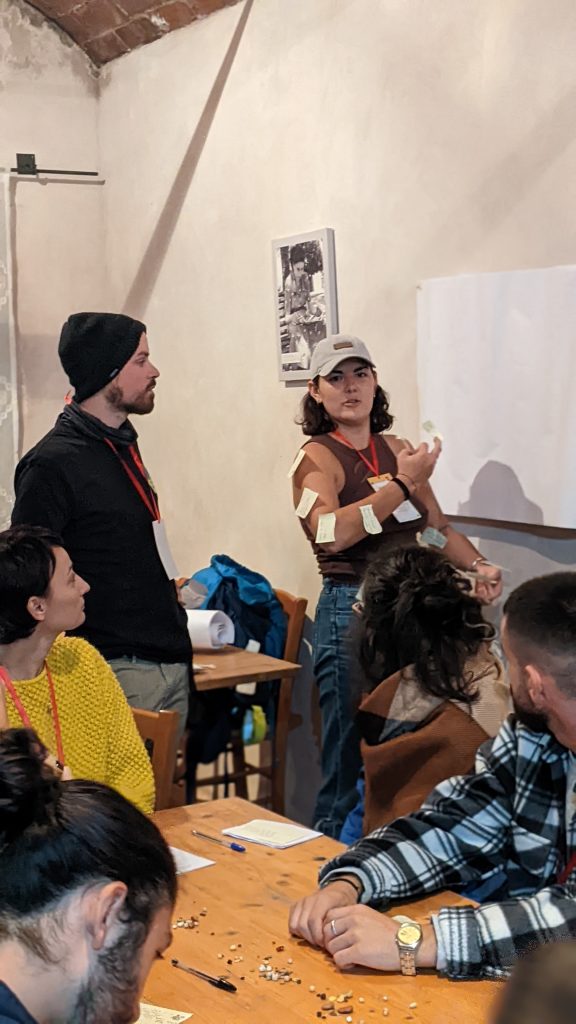
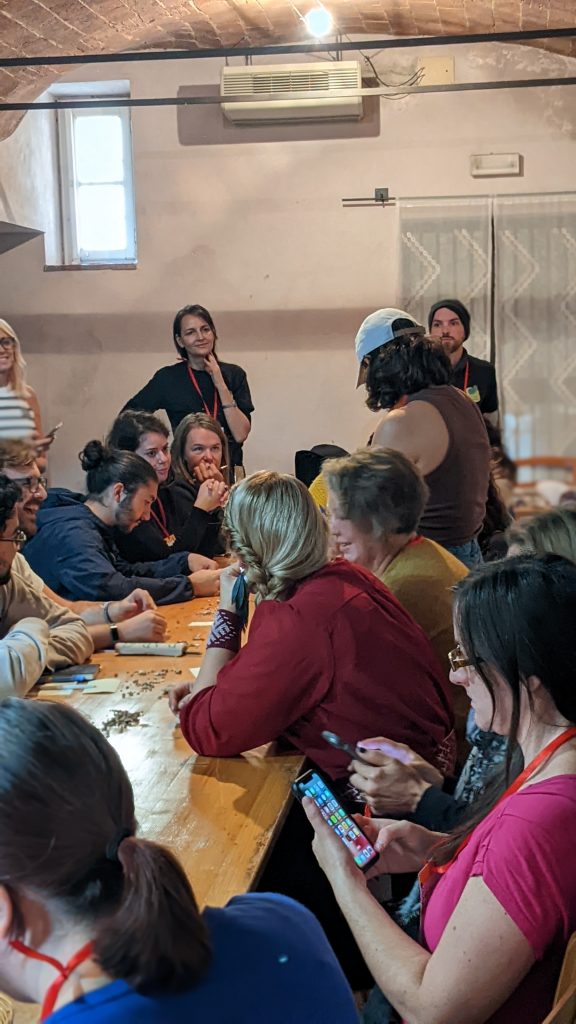
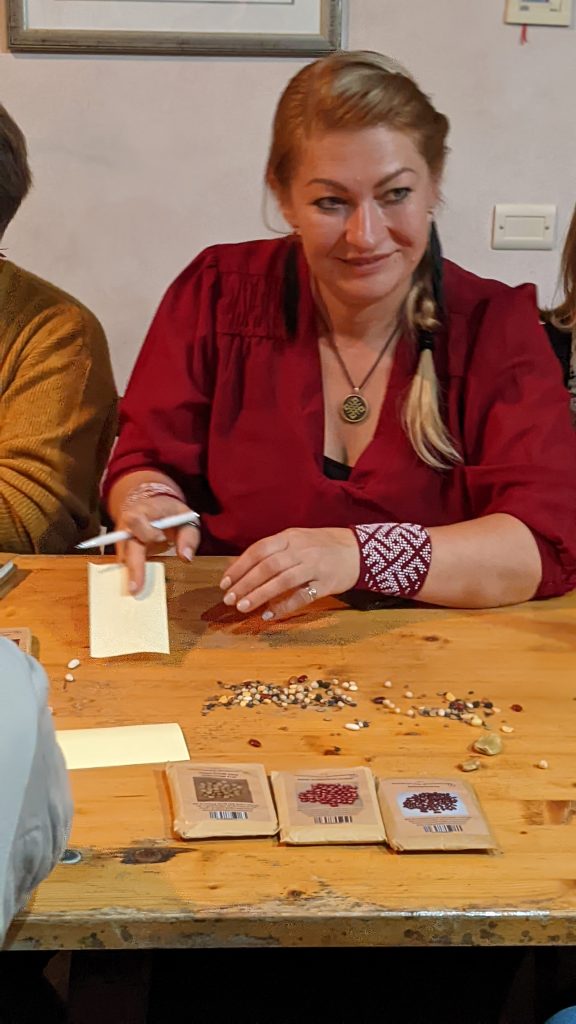
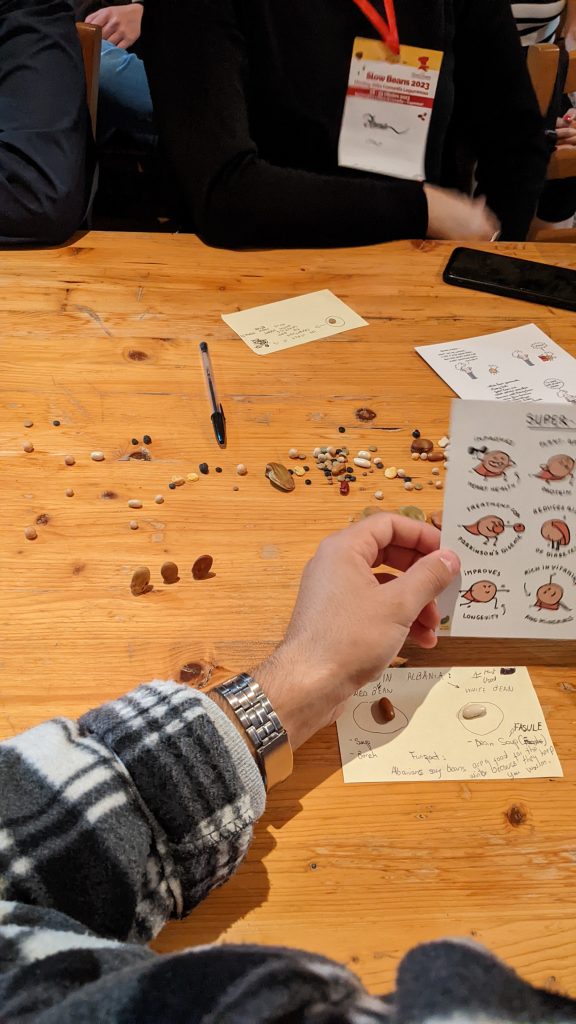
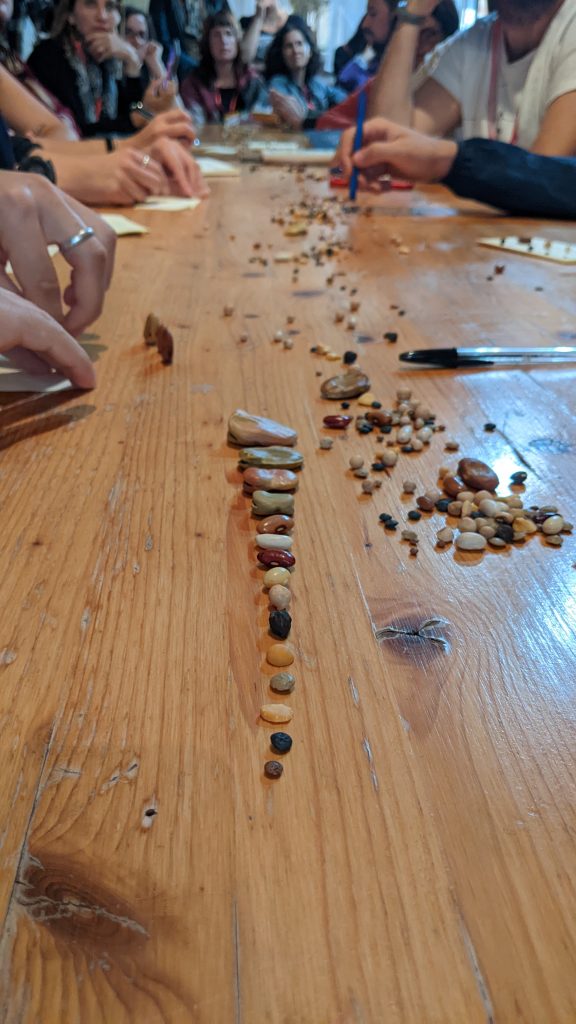
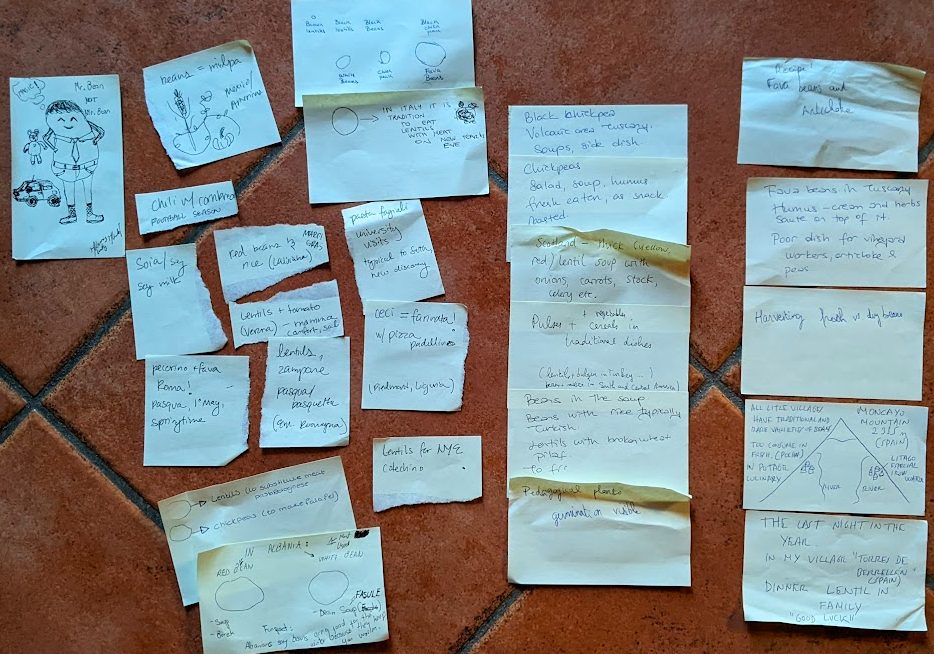
2. Talks illustrating the main benefits of pulses
2a. Pulse crops diversify cropping systems and reduce their climate impact
Not everyone knows how big chickpea plants are or what lentil flowers look like. First, we showed the audience the most common pulse species with pictures of the crops before discussing how growing more pulses can help to address several challenges in agriculture.
- Growing pulses can add diversity to crop rotations dominated by very few crops, extending the number of seasons between two occurrences of the same crop in a particular field. This allows for reductions in pesticide and herbicide use.
- Crop diversification also adds aesthetic value to the landscapes and is beneficial to soil organisms and pollinators.
- Pulse crop seeds are easy to reproduce by farmers. No hybrid varieties are widely grown and there is huge untapped potential in varietal diversity of heirlooms. For chickpeas, the international seed banks have collected no less than 80,000 accessions, “each of which is distinct and representative of the global diversity of chickpeas grown as crops as well as their wild relatives.”
- Legumes fix their own nitrogen, which provides the crop a free source of the main crop nutrient, allowing for significant reductions in the use of nitrogen at the scale of rotations including legumes. This is the main reason why pulses are the source of protein with the lowest carbon footprint.
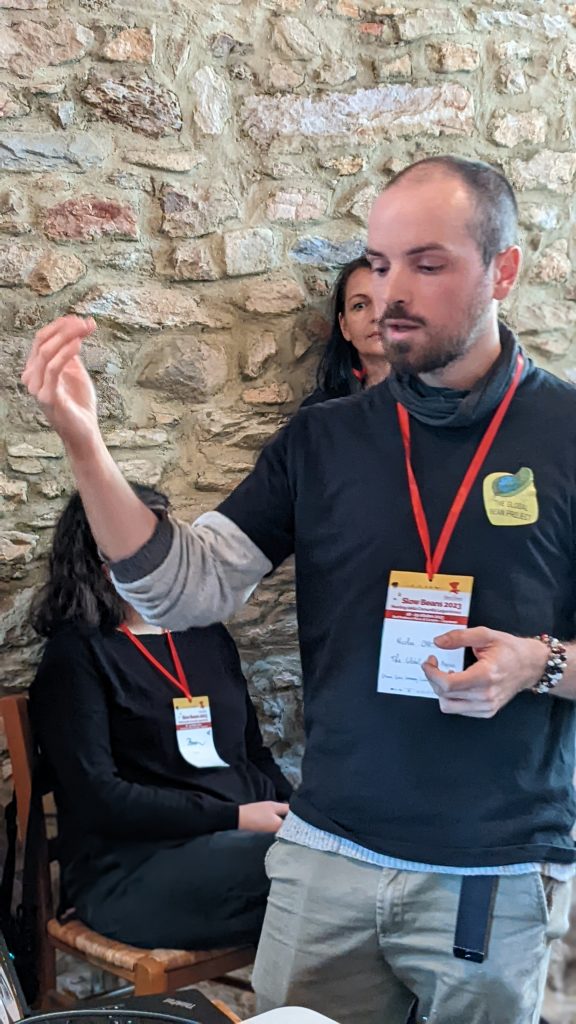
Resources:
- The Legume Manifesto, The Global Bean Project
- Beans and Environment Fact Sheet, Meatless Monday
2b. Benefits for nutrition and health
Becky Ramsing from the Johns Hopkins Center for a Livable Future presented scientific evidence on the nutrition and health benefits of including pulses in diets.
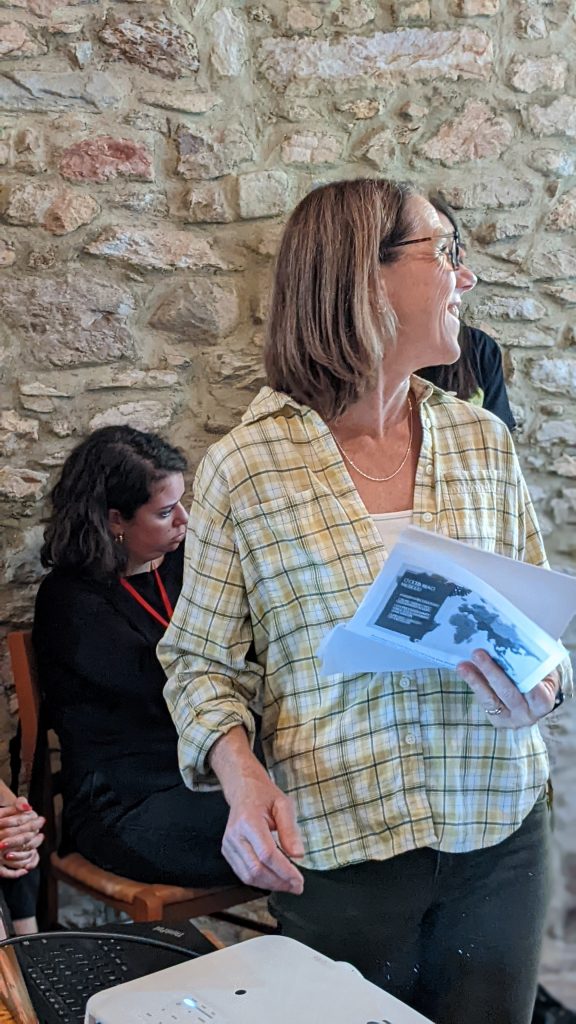
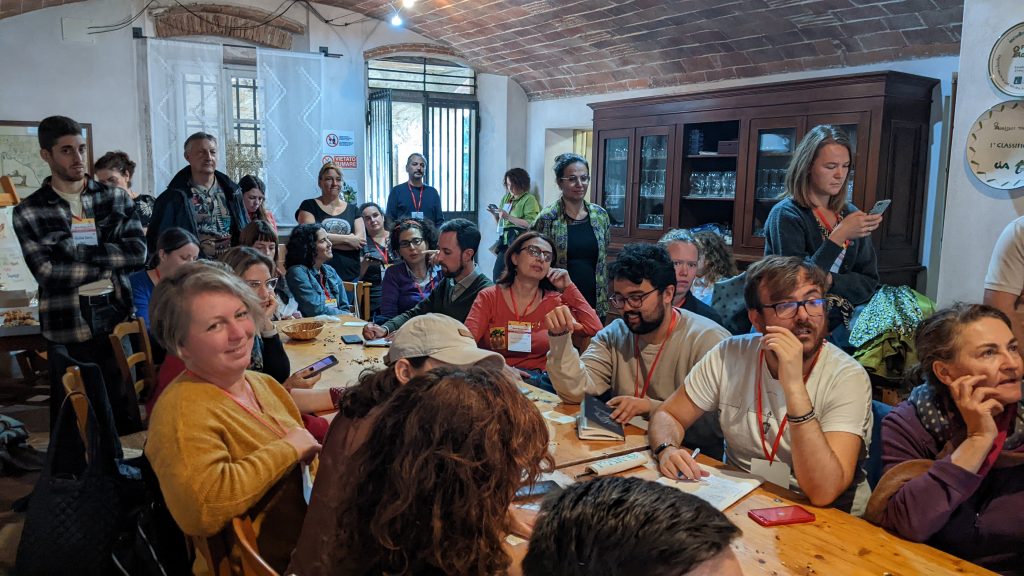
Resources:
- Healthy Beans – Nutritional Values & Benefits, The Global Bean Project
- Beans and Health Fact Sheet, Meatless Monday
2c. How to include more pulses in cooking
We then provided information on how to cook pulses from dry seeds and how to use more pulses in the kitchen (including some unexpected applications – desserts, fermenting, etc.). Cecilia showed us mouthwatering pictures of modern dishes where pulses take centre stage. Many of the dishes that were discussed can be adapted to use different pulses and other local seasonal ingredients.
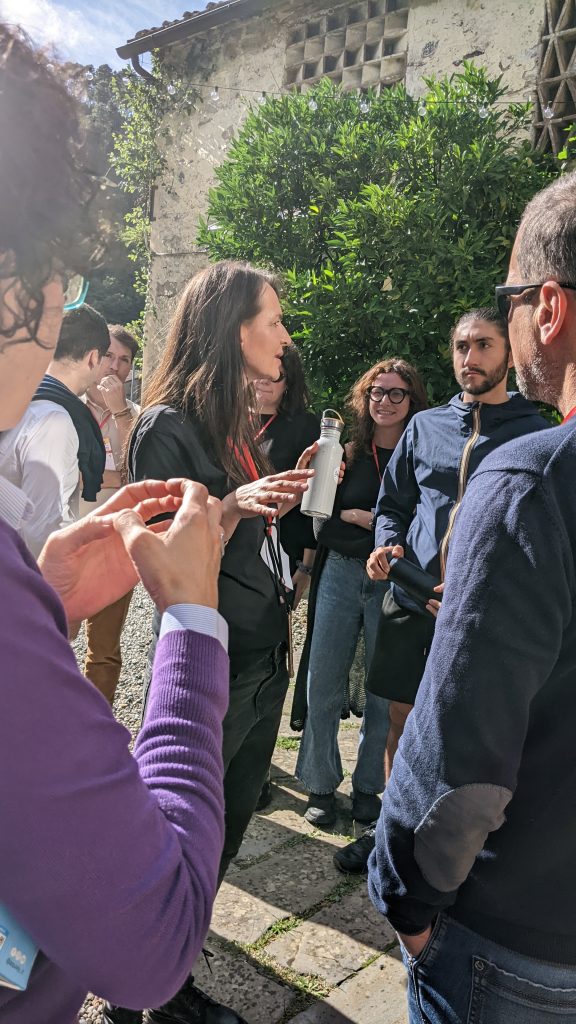
Resources:
- Cooking Pulses from Dry Seeds, The Global Bean Project
- Beans – Cooking and Tips, Meatless Monday
- Recipe Collection, The Global Bean Project
3. Group work and pulse promotion plans
Working together in small groups, participants spread out in the beautiful Tuscan garden and prepared a plan for how to promote pulses and their benefits in their own communities, taking into account the local specific contexts.
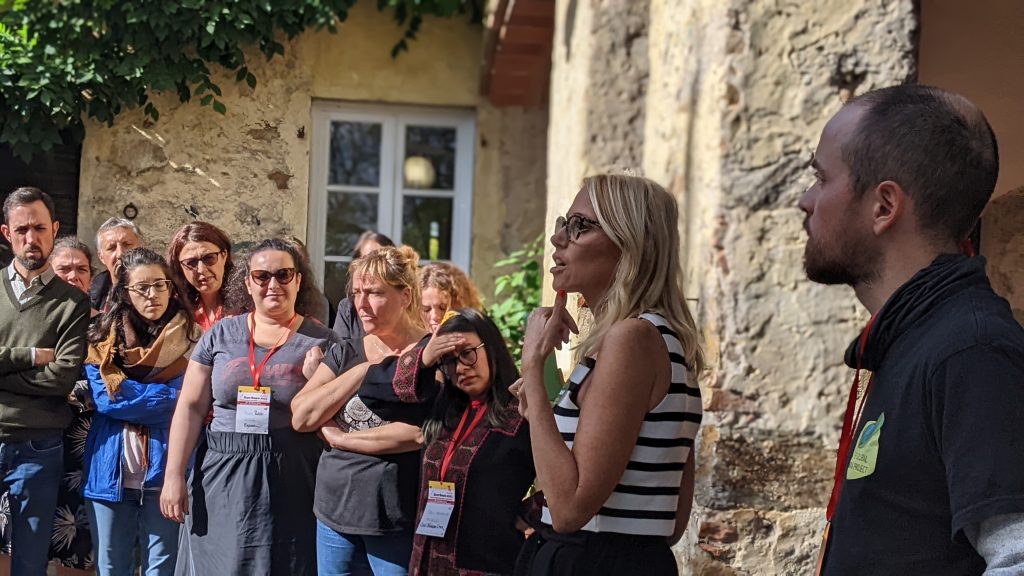
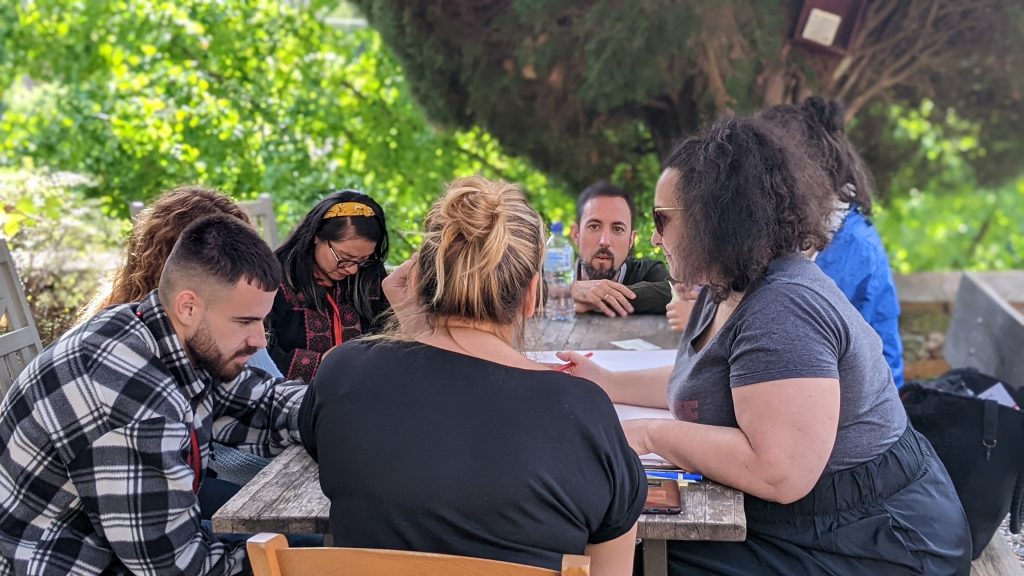
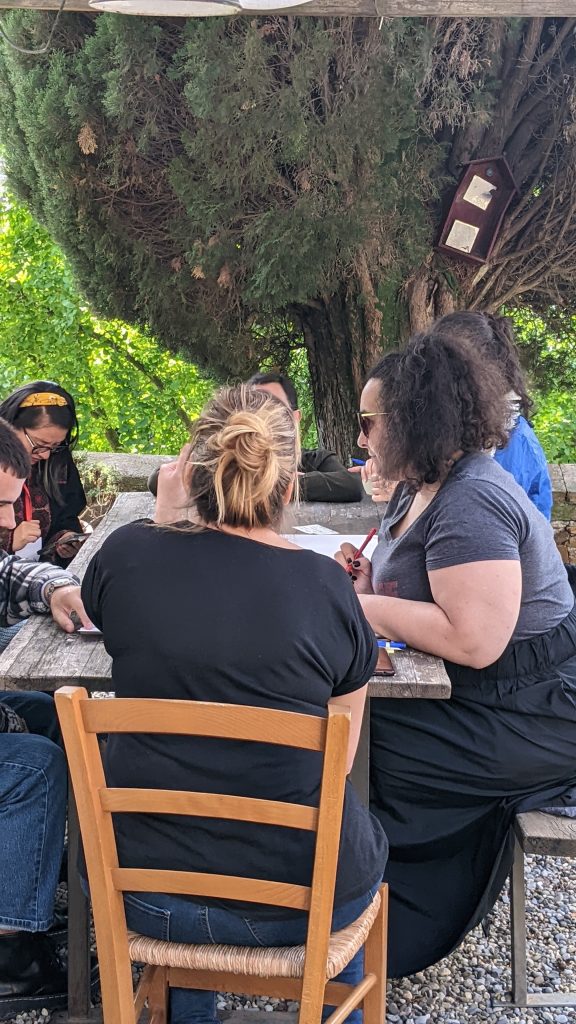
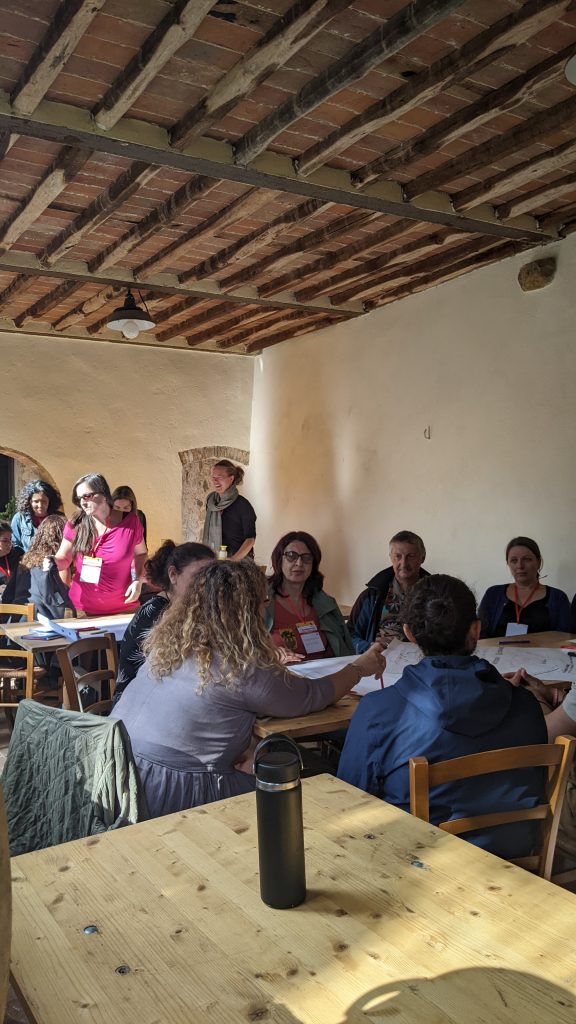
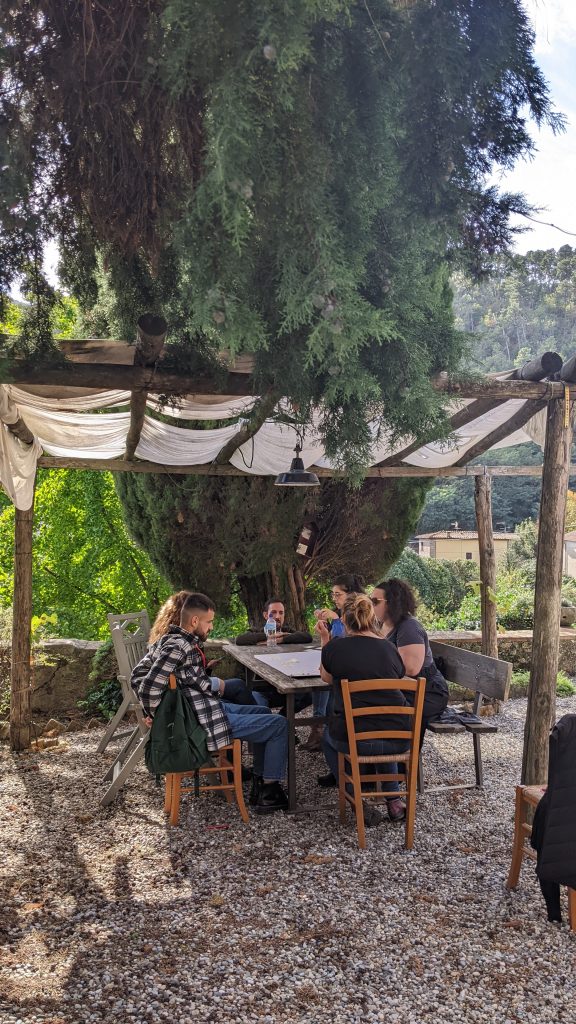
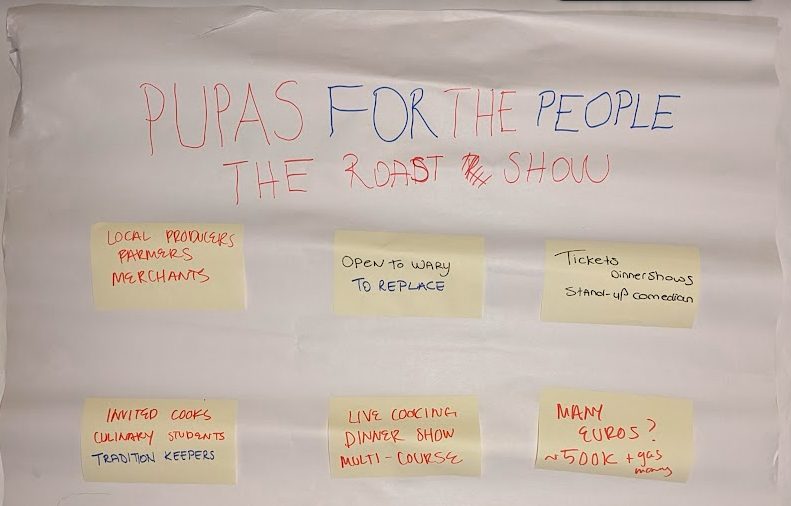
4. Group work presentations and discussion
Then each group proudly presented their plan! Participants thought about creative ways to promote pulses to the general public and Dana Smith from Meatless Mondays gave feedback from a marketing perspective.
Ideas included creating special TV cooking shows including pulse ambassador chefs, combining International Pulse Day (February 10th) with Valentine’s Day and inviting everyone to show their love through dinners with pulses, creating links between producers and consumers, and assisting in the transmission of recipes from older generations to the younger ones through cooking workshops.
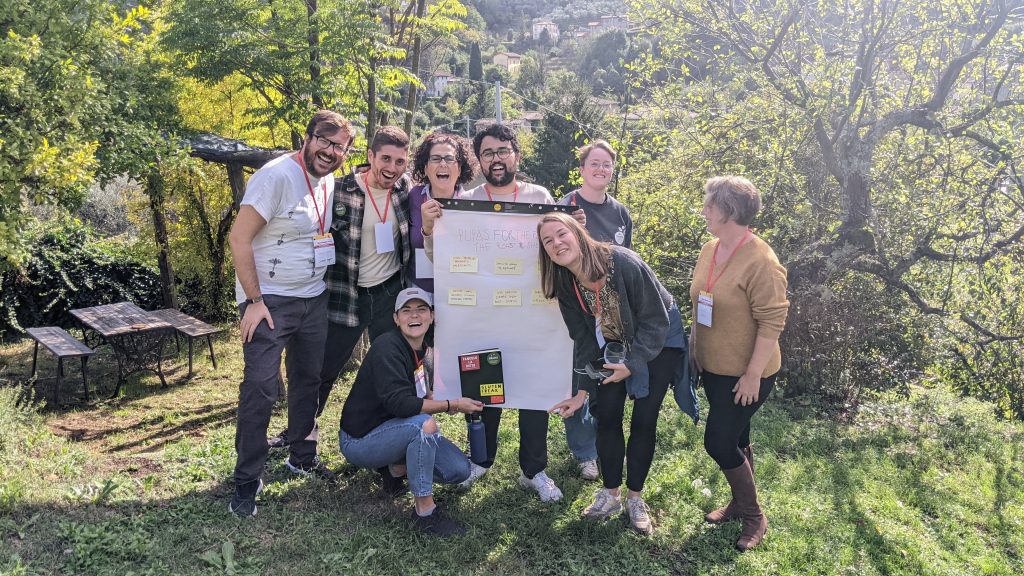
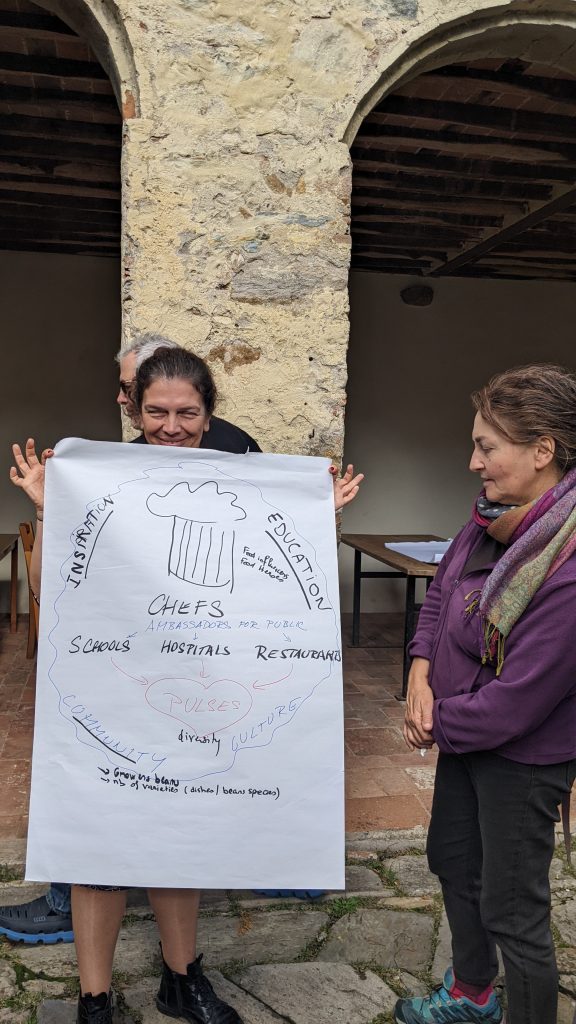
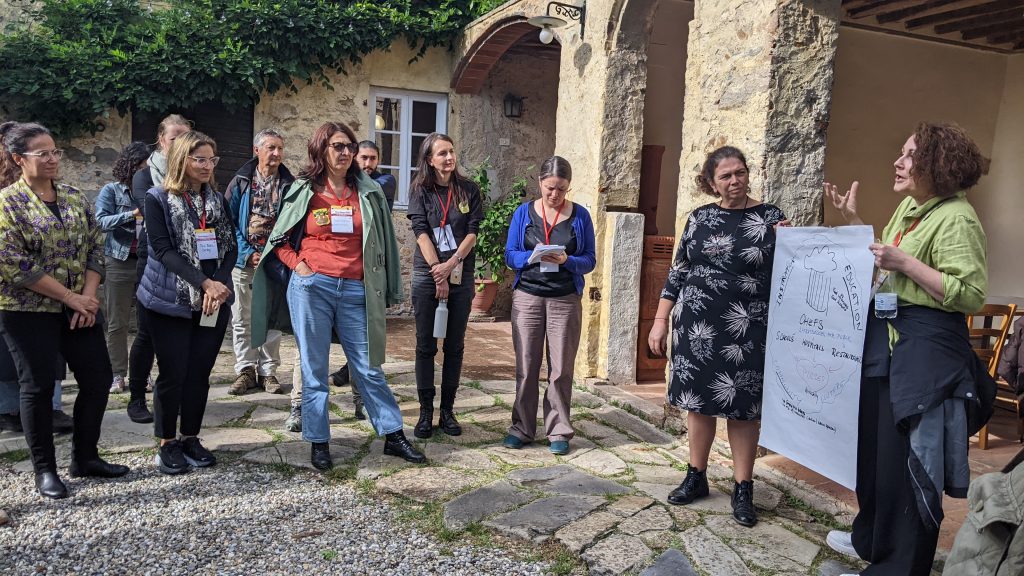
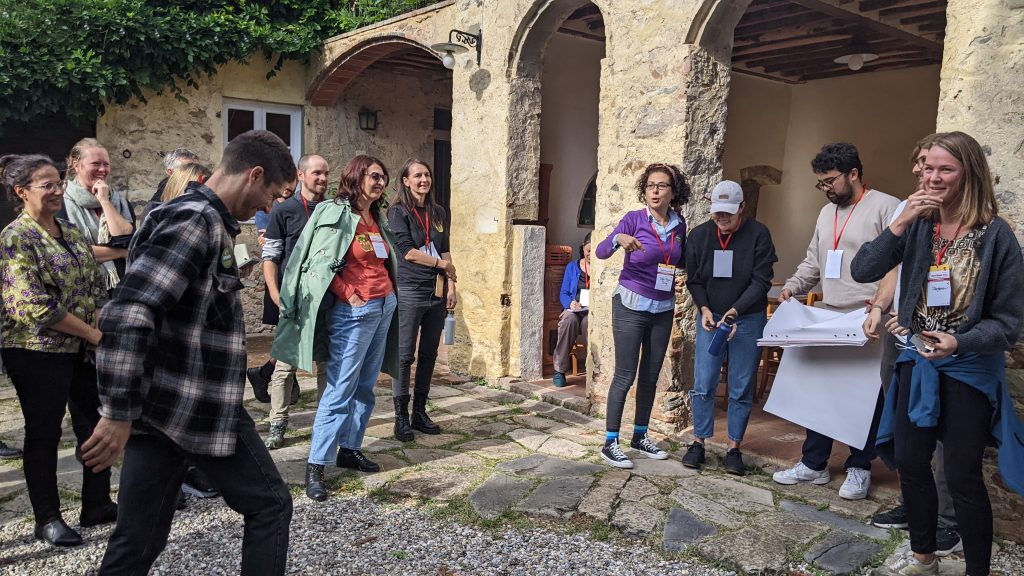
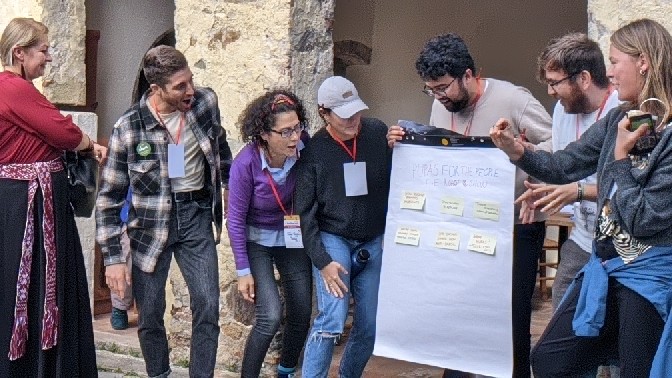
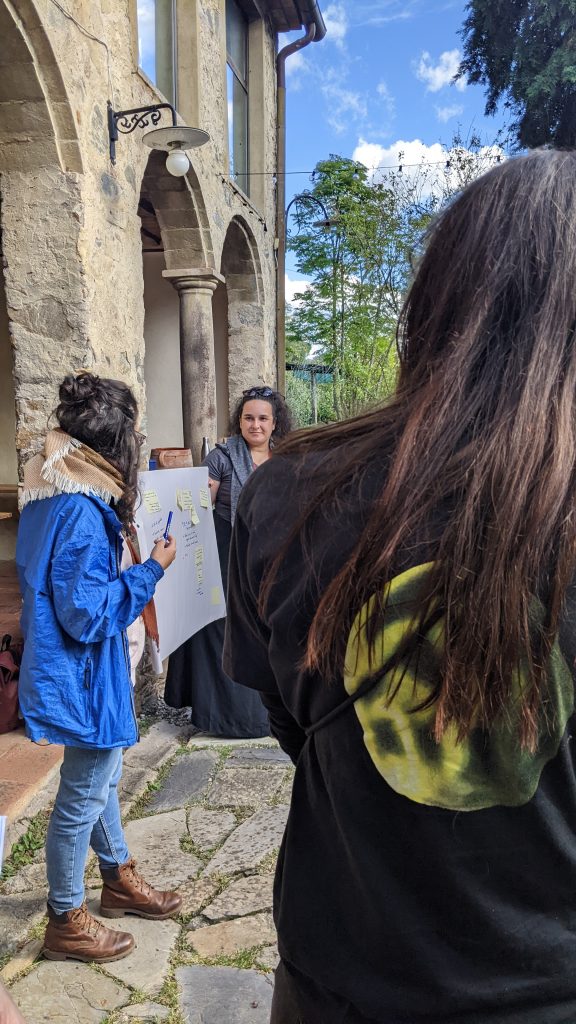
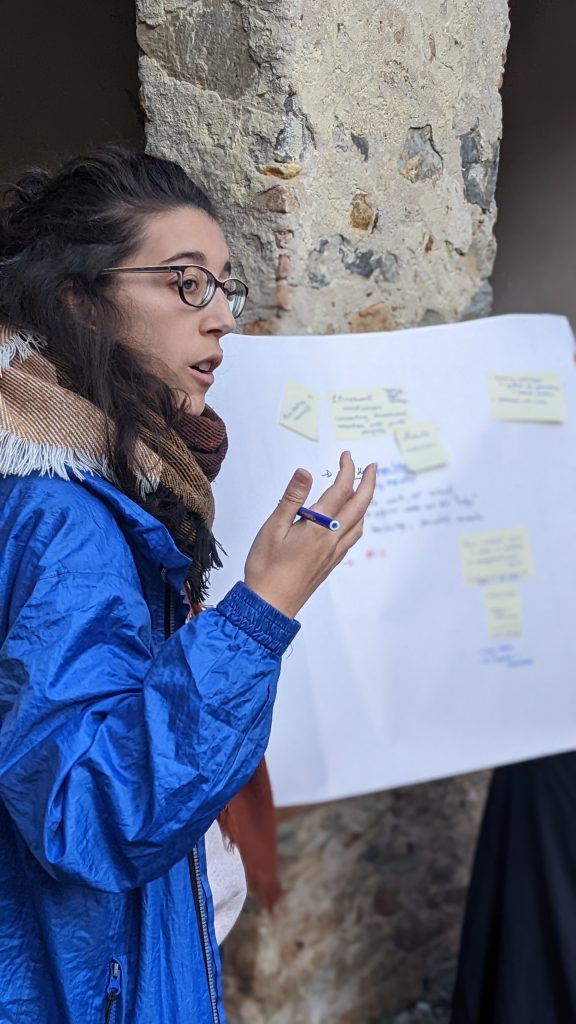
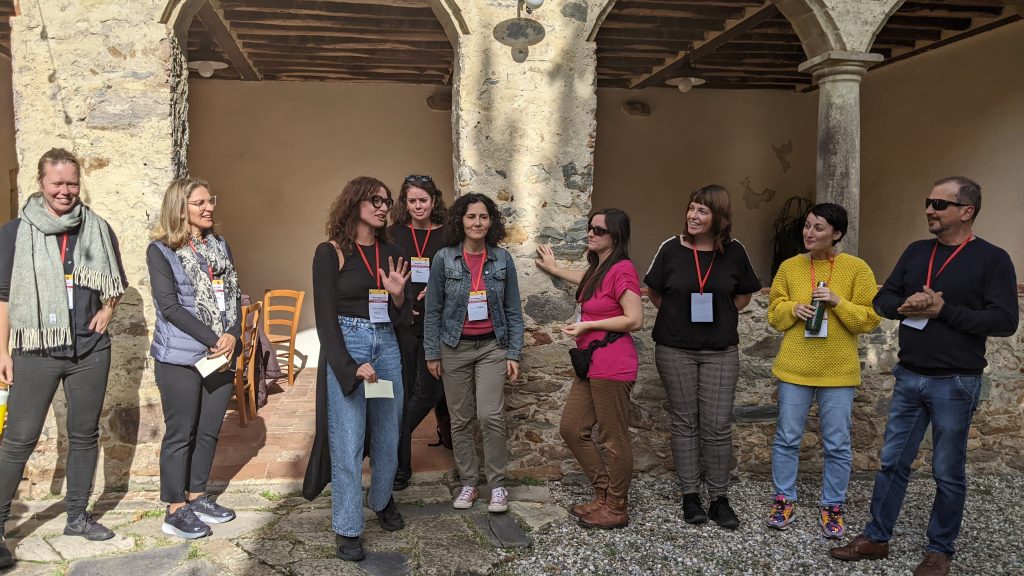
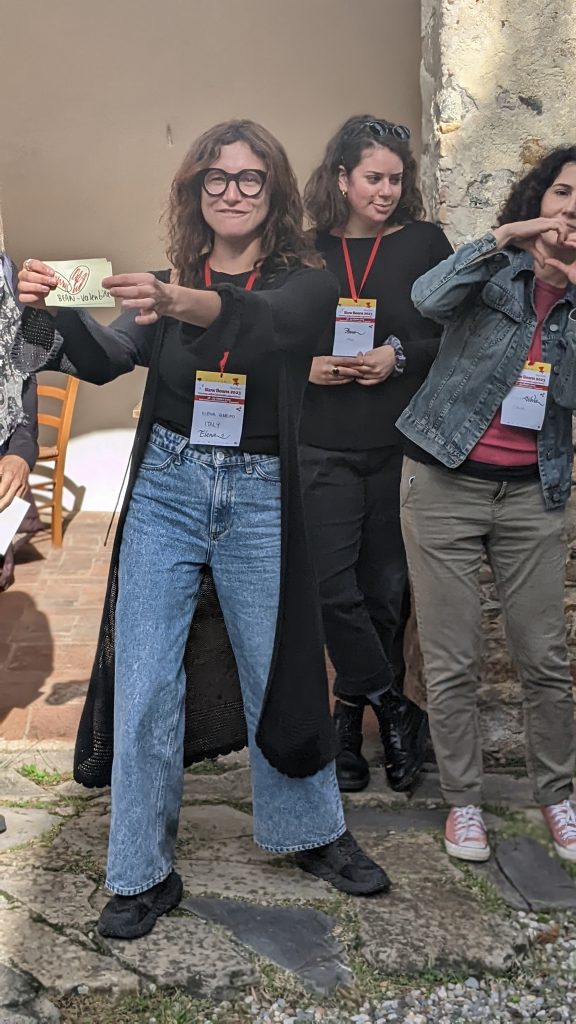
Do you have any questions? Please contact:
- The Global Bean Project –
- Nicolas Carton, Lumineuses –
- Cecilia Antoni, Bean Beat –
- Becky Ramsing, Center for a Livable Future –
- Dana Smith, Meatless Monday –
Further useful resources:
- Meatless Monday’s Beans Resource Center (recipes, cooking tips, promotion programme, creative, etc.)
More from the Slow Beans event…
A big thank you to the Slow Food team for organising such a great event and allowing us to share our love of pulses!
During the event, we met several legume producers and heard their stories. Stay tuned to meet them as part of our Behind the Seeds series.
